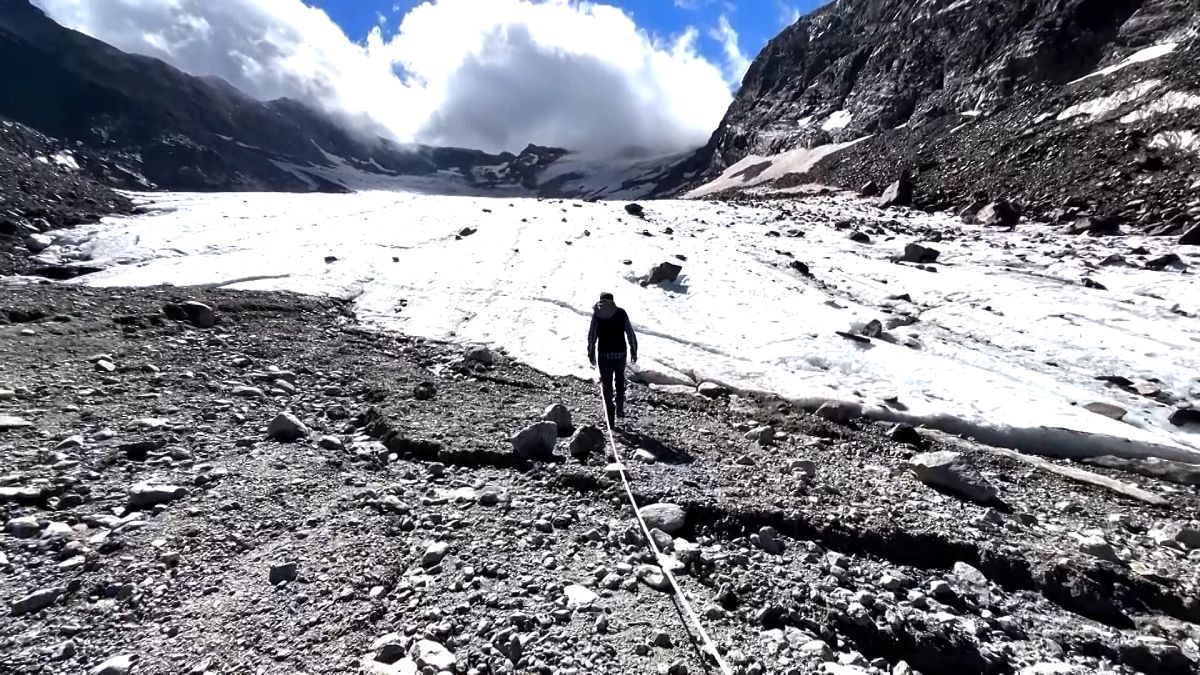Glacier specialists studying Italy’s Dosdè glacier in the Alps have reported troubling findings. Despite heavy snowfall earlier in the year, the Dosdè glacier has retreated by seven meters since last year. This is a smaller retreat compared to previous years, with 22 meters last year and 15 meters the year before. The snowfall that occurred initially made researchers hopeful for a positive outcome, but as the summer came to an end, only 20% of the glacier was covered in residual snow. The lack of snow cover has led to increased melting, contributing to the overall decline of the glacier.
It is well known that snow plays a crucial role in protecting glaciers and supporting their growth. Alpine glaciers have been shrinking due to rising global temperatures, with the Dosdè glacier being no exception. The Lombardy Glaciology Service has reported a significant decrease in the surface area of glaciers in the region, from 118 square kilometers to 70 square kilometers since 1991. This reduction amounts to approximately 45% of the glacier’s surface area disappearing over the past three decades. The alarming acceleration of glacier melting highlights the urgent need for action to address climate change and its impacts.
The high temperatures experienced in the region have further exacerbated the melting of glaciers. Meteorological data shows that temperatures at altitudes of over 3,000 meters have not dropped below freezing for two consecutive months. This prolonged period of warmth has caused a significant portion of the snow cover on the Dosdè glacier to melt, exposing the underlying ice to direct sunlight and accelerating the melting process. The rapid loss of glacial ice is a concerning trend that reflects the broader challenges posed by climate change in the region and beyond.
The findings of the glaciology service’s measurement campaign are a stark reminder of the urgent need to address climate change and its impact on the environment. The Dosdè glacier’s retreat highlights the vulnerability of glaciers in the face of rising global temperatures and the importance of conserving these natural wonders. Scientists and policymakers must work together to implement measures that reduce greenhouse gas emissions and mitigate the effects of climate change on glaciers and other sensitive ecosystems. The preservation of glaciers like Dosdè is not only important for their intrinsic value but also for the vital role they play in regulating global climate patterns.
As temperatures continue to rise and glaciers retreat at an alarming rate, it is crucial for individuals and communities to take action to reduce their carbon footprint and support sustainable practices. From minimizing energy consumption to supporting renewable energy initiatives, there are many ways in which everyone can contribute to mitigating climate change and protecting fragile ecosystems like the Dosdè glacier. By working together to address the root causes of climate change, we can help safeguard the future of our planet and ensure that future generations can enjoy the beauty and benefits of glaciers for years to come.
In conclusion, the retreat of Italy’s Dosdè glacier is a stark reminder of the impacts of climate change on our planet. The findings of the Lombardy Glaciology Service highlight the urgent need for action to address rising global temperatures and their effects on glaciers. By prioritizing sustainable practices and advocating for policies that reduce greenhouse gas emissions, we can work towards preserving glaciers like Dosdè for future generations. The time to act is now, before it is too late to save these natural wonders from disappearing forever.











